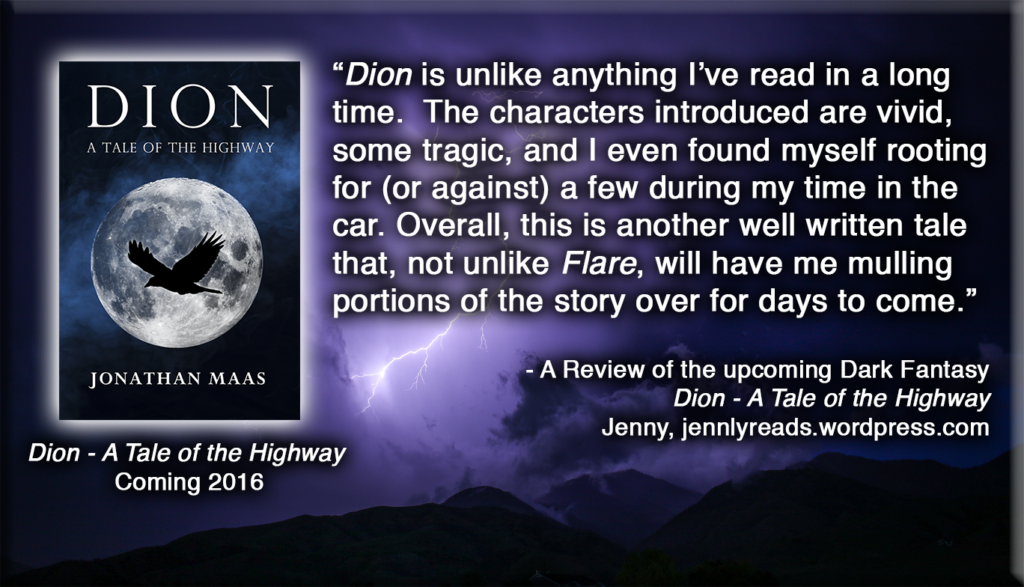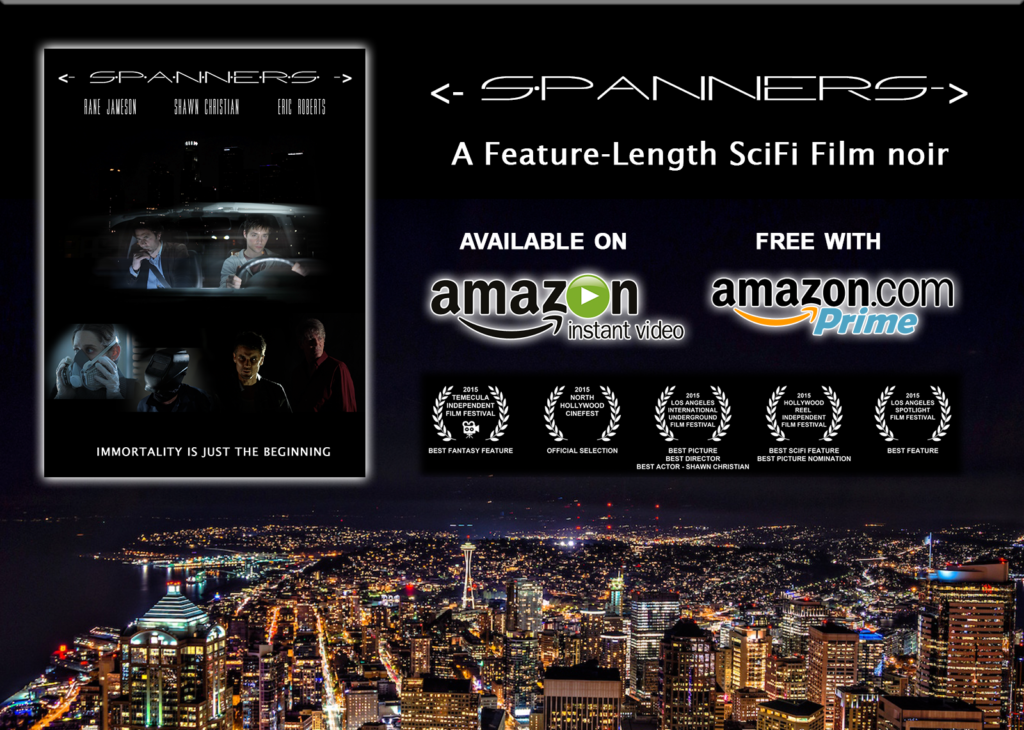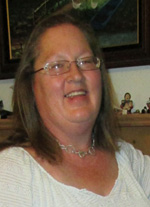This interview gives some great insights into the worlds of Jonathan Maas.
I found Flare an unusual and intriguing read. So let’s get to some questions with the author.
DQ: There was a strong allegorical feel to Flare. It reminded me very much of Pilgrim’s Progress, but set in a much more modern world. What led up to this story?
JM: First of all, thank you for the interview, Ducky, and thank you for putting the book in such good company with your comparison!
In any case the story of Flare was a long time coming! Originally, the filmmaker David C. Keith and I were hoping to turn it into some sort of film, and that could still happen!
But in the meantime I just sat down with it day after day, night after night, and hammered it out. The concept was straightforward – a solar flare makes daylight so deadly that it blinds you instantly and kills you within minutes. And as I sat down with it for a long time, the life around the concept just grew.
As far as the allegorical feel, one of my theories is that there are some things in life we may not be able to answer. What can bring about world peace? What happens in the afterlife, if there is one? What’s life on a different planet like? What’s the purpose to our own existence?
What I like to do with these questions is come up with a completely fictional response. Though that obviously doesn’t lead to a definitive answer, the process of doing this can yield some truths. Not the answer, but some truths.
With Flare there were many questions I had to answer, questions that might not have an answer to begin with. I asked them through Flare’s allegorical nature, and though they are by no means definitive answers in the book, I believe truths can be gleaned from it.
DQ: It was interesting to have a mute as a major character in the story and I kept waiting, as I read, to find out his background. Why is Zeke mute?
JM: First of all, a side note before I get to Zeke’s lack of speech – like many authors I don’t consider myself so much a ‘writer’ as a ‘listener.’ I don’t always choose how stories come into being, so much as I maintain the discipline of getting in front of the page every day and intuiting what the universe is saying.
I don’t want to alienate readers of this interview by detaching myself from reality – it’s just that as an author I listen to things and some things are beyond even my understanding.
This happens with songwriters quite a bit – I believe ‘L.A. Woman’ from the Doors just happened spontaneously in the studio, with no planning!
Don’t quote me on that, but there is a great passage in the documentary 20,000 Days on Earth when Nick Cave talks about his favorite part of songwriting is when a song is in its wild state, just being played by a group of musicians, and not yet wrangled into a definitive form.
In short, sometimes things just happen – and the same can be said for writing!
But I digress and back on to Zeke –
His muteness just happened, and he takes up half the book without saying a word. I have my theory, and it’s probably true, but I don’t want to say it lest I take away the readers’ ability to come to their own conclusions. I sat down with Zeke every morning for a long time, and his muteness was just there because – I’d rather not spoil it. I have my theory though ;).
DQ: I’ve read your bio on Amazon and I find it interesting that you write on your commute to work. Tell me more about your background and why you became a writer.
JM: Thank you for asking about this! Before I get on my background and why I became a writer – I’d love to talk about both public transportation and time management.
In any case – I do indeed write on my way to work! As a working parent, it is the only time I can write practically!
My commute is my method of taking time from the day. Most every author struggles with this same issue. How do you find time to write?
Before we ask this, let’s consider the supreme value of time to an author.
As an author, your primary currency is time. Above all else you need time to write a book. If you win a grant, write books for your day job or are otherwise time-rich, good for you – you’ve figured out perhaps the greatest challenge facing an author! But if you’re like the other 99% of us in this world, time is not on your side.
Kids. Work. Commute. Spouse. Dating. Friendship. Going to get groceries. A number of other things that eat away at your time!
And when you do get time to sit down and write? It’s 9pm and you can’t keep your eyes open.
So you not only need time, you need regular, quality, non-tired time. Notice how I put regular in there. This doesn’t mean every once in a while you might have an hour. This means every day you have an hour, or two, and if more time pops up you take that as an addition!
So how do you get this time? Every author must find their own path. If you can get to write a book for your day job or take three months off – great! But if you can’t – it’s up to you to find a way.
For me it was my commute. City of Gods: Hellenica was written on the 218 bus, my work moved, and then Spanners: The Fountain of Youth and Flare were written on what was then known as the 760. I changed jobs – and The Dog That Laid Eggs was written on the subway. My upcoming book Dion was written on the 183, as well as the one after that – City of Gods II: Horsemen.
Writing on the bus makes you dizzy? Train yourself until it doesn’t. Don’t live near a bus stop/ train station? Drive to a Park N’ Ride.
If you still can’t commute on public transportation, then it’s up to you to find another way to get time. Regular, non-tired time is the main thing you need – it’s up to you to grab it.
Note – you can see more tips at my blog post here – Eight Ways a Working Parent Can Find Time to Write!
Now on to the second question – my background and why I became a writer?
I’ve had a lot of jobs, a lot of careers – from Peace Corps Volunteer in Namibia, Africa, to a standup comedian, to my current career in the world of tech!
Why do I write? So many reasons, but I’m primarily in it to provide value to others. I want to inspire others, and take away their problems, at least for the moment. I want say to the world – life is difficult, but for the next three hundred pages or so, your problems do not apply!
DQ: This question is standard fare in author’s interviews. However, I am very interested after reading Flare to learn who has influenced your writing?
JM: Influences? Oh my gosh way too many. John Updike, Frank McCourt, most recently Octavia Butler, Andrew Kaplan and Ann Druyan along with Carl Sagan. Stephen King said it best in his brilliant The Bazaar of Bad Dreams that each work is influenced heavily by what the author happens to be reading at the time, and that’s true for most everyone.
An aside here if you will, Ducky – King writes a little preamble before each story in that book stating which author influenced his style before the short story, and then you read the short story so adroitly-written in that author’s style!
But influences –
For Flare, Cormac McCarthy to begin with, but it ended up as Larry McMurtry.
For The Dog That Laid Eggs, perhaps its silly style was influenced by Piers Anthony, particularly Ogre, Ogre.
I was also a bit inspired by Clive Barker’s Hellraiser and the band Steel Panther – both that book and the band really pick a direction and stick with it come whatever may.
With the upcoming book Dion I included a bibliography, but in short it was inspired by The Girl on the Train, JJ Abrams and Doug Dorst’s S., and a song from the band A Pale Horse Named Death called Dead of Winter. Arthur C. Clarke taught me how to think big, and of course Dante’s Inferno influenced it heavily!
I could go on and on Ducky! I’m sure I left some authors out!
DQ: During your free time, what books/genres do you enjoy reading?
JM: I of course love Science Fiction and Fantasy, but I’m trying to deliberately have something in front of me that I wouldn’t normally read. I picked up Gone Girl on a whim awhile ago and was rewarded for it!
Though it’s a page-turning thriller so it doesn’t really count. But still – I try to expand my horizons whenever I can by jumping into a genre I don’t normally gravitate towards!
I also enjoy ‘big’ non-fiction. Something that can help us truly understand the world. Jon Ronson’s books take on big themes, and Ann Druyan / Carl Sagan’s Cosmos takes on the biggest them of them all. I most recently read The Rise and Fall of Alexandria: The Birthplace of the Modern Mind, and it basically shows a fundamental chapter in the history of humanity – from Alexander to Cleopatra and beyond. It’s a great history lesson, but it’s more than that – it helped me better understand humanity as a whole.
And of course Murder in Absentia by Assaph Mehr!
DQ: What can we expect from you next?
JM: Right now I’m working on getting out my next book Dion – which already has a pre-release review from JennlyReads here.
After that, I’m getting through the first draft of the sequel to City of Gods: Hellenica, hoping to get that soon to my brilliant editor Patty Smith. It’s coming along, and I hope to get City of Gods II: Horsemen out by January 2017.
I also filmed a movie with David C. Keith, Spanners – which is available on Amazon Video here, free with Amazon Prime. It is a full-length movie and a prequel to Spanners: The Fountain of Youth.
We are just pushing it out there!
That’s it Ducky – and again THANK YOU for the opportunity!
Thank you Jonathan for sharing with us.





